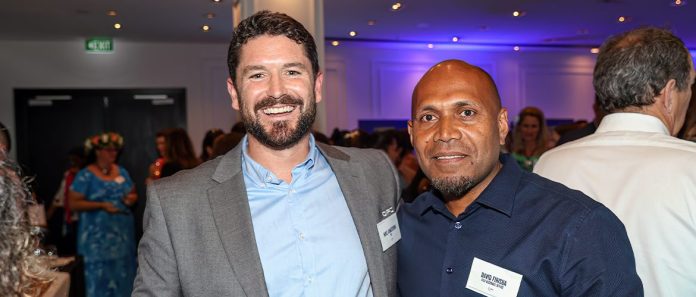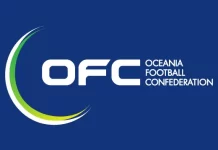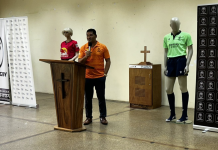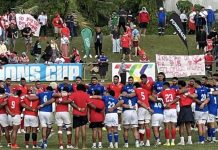The Oceania Football Confederation (OFC) has launched the Power of Football strategy, an ambitious programme to enhance the wellbeing of individuals and communities across the Pacific.
OFC has long recognised the power of football to develop individuals and communities and has led the delivery of football for development programmes which address challenges specific to our region. This has included the delivery of the Just Play Programme which has reached over 400,000 children since 2009 with support from the New Zealand Ministry of Foreign Affairs and Trade, Australian Aid, the UEFA Foundation for Children and UNICEF.
The ‘Power of Football’ strategy goes beyond delivery of individual programmes to integrate a focus on social development through all football operations and acknowledges that supporting individual and community health and wellbeing is central to the sustainable growth of our sport.
The OFC Social Responsibility team will be a key partner and enabler for change driving initiatives to address issues of poor health, social exclusion, poverty, and the disruptions caused by climate change.
Head of Social Responsibility Michael Armstrong believes the Power of Football strategy will deliver concrete results and enhance the wellbeing of people across the region.
“We know football is a powerful tool to engage children, adults and communities and we have seen the diverse positive benefits that come from being involved in our sport,” Armstrong said.
“This strategy aligns with OFC’s overall 2023-2026 strategy focusing on Development, Education and High Performance and represents an exciting step in our approach to intentionally maximise these impacts, and to mitigate any harms that can come from our sport.”
The Power of Football has been aligned to the Sustainable Development Goals and will accelerate our efforts to support Agenda 2030, through our own decade of action with specific activities, to foster deep community relationships and create life-long commitments to football, while enhancing the sport’s reputation and institutional partnerships to sustainably support the game.
The OFC’s Member Associations have agreed on four outcome areas that are linked with Sustainable Development Goals where football can influence the wellbeing of everyone involved in the game.
*An Inclusive Oceania: Ensuring football leaves no one behind and our activities promote peace, inclusive societies and empower marginalised groups resulting in increased participation for women, girls, and people with disabilities.
*A Healthy Oceania: Ensure football leaves a lasting positive impact for all involved. This will reduce the rate of NCDs, mental health issues and preventable illness in football communities.
*A Resilient Oceania: Regional leadership in mitigating environmental impact of our sport and promoting resilience across the region and resulting in reduced environmental impact from football.
* A Flourishing Oceania: Support building skills, capability, and employment at a local level to ensure communities’ flourish. This will result in increased GDP contribution from football.
Activities are already well underway to transform the game and promote football as a tool for sustainable development. This has included integrating mandatory safeguarding training into all coach education and trainings across the Pacific. We are delivering programs to ensure football is more inclusive and empowering for women and girls in our region by increasing access to opportunities for women and girls to play and encouraging the entire community to support women and girls in football.
OFC has engaged in new partnerships with the UN System including with UN Women in 2022 and launch of “this is How We Football” a programme being delivered to encourage adolescent girls to engage in grassroots to elite football, removing barriers to participation identified in the OFC Gender Equality Playbook released last year.
“The 2023 FIFA Women’s World Cup has brought the attention of the world to football and our region this year and we are focused on leveraging this to ensure the lasting benefit for football and the communities involved,” Armstrong said.
“The Power of Football outlines how we can ensure these benefits are felt beyond the football pitch. For OFC this is about going beyond single programmes to ensure social impact from all football activities.”
SOURCE: OFC/PACNEWS


















